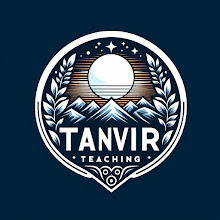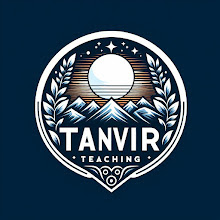Rich Dad Poor Dad: A Comprehensive Review
"Rich Dad Poor Dad," written by means of Robert T. Kiyosaki, is a non-public finance conventional that has motivated millions of readers internationally due to the fact that its first e-book in 1997. The e-book provides a compelling narrative that contrasts the monetary philosophies of father figures in the author’s life: his biological father (the "Poor Dad") and his pleasant buddy’s father (the "Rich Dad"). Through their differing views on cash, work, and life, Kiyosaki introduces readers to foundational economic concepts that undertaking traditional awareness.
Summary of Main Points
1. **The Importance of Financial Education**:
- Kiyosaki emphasizes that conventional schooling does no longer appropriately put together individuals for financial achievement. He argues that know-how cash and the way it works is vital for financial independence.
- The “Poor Dad” believed in formal schooling and job security, whereas the “Rich Dad” valued financial training and entrepreneurial capabilities.
2. **Assets vs. Liabilities**:
- One of the ebook’s core training is knowing the distinction between property and liabilities. Kiyosaki defines an asset as some thing that puts cash to your pocket and a legal responsibility as something that takes cash from your pocket.
- This redefinition demanding situations the traditional attitude that perspectives owning a home as the final asset. According to Kiyosaki, a non-public house is usually a liability because of the continuing prices it incurs.
3. **The Rat Race**:
- The "rat race" refers back to the limitless cycle of operating for cash, paying bills, and in no way reaching actual monetary freedom.
- Kiyosaki illustrates that many people get caught in this cycle because they attention on earning a better earnings as opposed to creating passive income via investments.
Four. **The Power of Corporations**:
- Kiyosaki highlights the benefits of understanding company structures and using them to minimize taxes and shield non-public wealth.
- He factors out that the rich use agencies to take advantage of tax benefits, while the bad and middle magnificence typically do no longer understand a way to leverage this know-how.
5. **Mind Your Own Business**:
- This precept encourages readers to take control of their monetary destiny through constructing and investing in their own businesses, in place of completely counting on employment.
- Kiyosaki urges individuals to develop their own property that generate passive profits, such as real estate, shares, bonds, and highbrow assets.
6. **Work to Learn, Not for Money**:
- Kiyosaki advises human beings to are seeking jobs as a way to teach them treasured capabilities rather than those that definitely offer the very best profits.
- He stresses the significance of developing a diverse ability set, along with income, advertising and marketing, and investing, to become financially independent.
### Pros of "Rich Dad Poor Dad"
1. **Engaging Narrative**:
- The use of storytelling makes the monetary principles more relatable and simpler to understand. By contrasting the advice of his two “dads,” Kiyosaki efficiently demonstrates distinct tactics to cash and achievement.
2. **Accessible Language**:
- Kiyosaki’s writing is easy and avoids technical jargon, making the e book on hand to readers and not using a earlier monetary history.
Three. **Practical Lessons**:
- The e book provides actionable advice that readers can implement to enhance their financial scenario, such as monitoring prices, investing in assets, and searching for monetary education.
Four. **Challenging Conventional Wisdom**:
- "Rich Dad Poor Dad" encourages readers to question conventional ideals approximately cash, profession, and training. This paradigm shift can be eye-establishing and transformative for lots.
5. **Focus on Financial Independence**:
- The emphasis on creating passive profits and accomplishing monetary independence is a key takeaway that resonates with many readers. Kiyosaki’s attention on constructing property in preference to counting on a paycheck aligns with the desires of these in search of lengthy-time period economic freedom.
### Cons of "Rich Dad Poor Dad"
1. **Oversimplification**:
- Some critics argue that Kiyosaki oversimplifies complex economic principles and downplays the risks involved in entrepreneurship and investing. His binary categorization of assets and liabilities, as an example, won't seize the nuances of real-global monetary making plans.
2. **Anecdotal Evidence**:
- The book is based closely on anecdotal proof and personal stories instead of empirical records. While these testimonies are engaging, they'll now not be universally applicable or scientifically legitimate.
3. **Risky Advice**:
- Kiyosaki’s encouragement to put money into real property and begin groups can be unstable, specifically for people without enough information or assets. Following his advice with out an intensive information of the dangers concerned can result in financial losses.
4. **Lack of Specificity**:
- While the ebook offers huge standards, it regularly lacks detailed, step-by-step guidance on a way to enforce its recommendation. Readers seeking concrete funding strategies or financial plans may additionally discover the ebook missing on this regard.
5. **Controversial Claims**:
- Some of Kiyosaki’s claims, along with the belief that a domestic isn't an asset, have sparked debate among economic specialists. His unconventional views might not align with mainstream monetary advice, leading to capability confusion for readers.
Detailed Explanation of Main Points
Financial Education
Kiyosaki argues that traditional schooling systems fail to educate students about cash control and economic independence. He believes that understanding how money works is greater essential than merely earning it. By sharing the contrasting economic philosophies of his "Poor Dad" and "Rich Dad," Kiyosaki highlights the limitations of conventional education and the blessings of self-directed financial studying.
- **Poor Dad**: Valued formal training and task safety. Believed that getting exact grades and a strong process could lead to monetary achievement.
- **Rich Dad**: Emphasized the importance of financial training, making an investment, and entrepreneurship. Believed in acquiring assets that generate passive profits.
Kiyosaki’s emphasis on financial schooling encourages readers to are seeking for know-how approximately making an investment, taxes, and commercial enterprise operations, which aren't usually included in traditional education.
Assets vs. Liabilities
One of the most impactful training in "Rich Dad Poor Dad" is the distinction between belongings and liabilities. Kiyosaki redefines those phrases to assist readers apprehend the importance of generating passive profits.
- **Assets**: According to Kiyosaki, assets are something that puts cash into your pocket, consisting of condo homes, shares, and agencies.
- **Liabilities**: Liabilities take money out of your pocket. This includes private residences, vehicles, and other charges that don't generate income.
By focusing on acquiring belongings and minimizing liabilities, Kiyosaki believes individuals can acquire monetary independence. This concept encourages readers to significantly compare their economic decisions and prioritize investments that produce profits.
The Rat Race
Kiyosaki describes the "rat race" as the infinite cycle of running for a paycheck, paying payments, and in no way attaining economic freedom. He argues that many humans are trapped on this cycle due to the fact they focus on earning a higher profits instead of building belongings.
- **Traditional Path**: Get a good schooling, steady a high-paying job, purchase a residence, and acquire debt.
- **Rich Dad’s Path**: Invest in assets that generate passive profits, limit liabilities, and focus on financial independence.
Kiyosaki’s depiction of the rat race demanding situations readers to reconsider their approach to paintings and cash. By prioritizing asset-constructing over profits will increase, he indicates that people can escape the rat race and gain authentic economic freedom.
The Power of Corporations
Kiyosaki highlights the benefits of expertise and using corporate structures to shield private wealth and limit taxes. He explains that the wealthy regularly use companies to take gain of tax blessings and protect their property.
- **Tax Benefits**: Corporations can deduct prices inclusive of journey, education, and entertainment, lowering taxable earnings.
- **Asset Protection**: Corporations offer a criminal structure that separates private property from business liabilities, offering protection in case of court cases or monetary difficulties.
By teaching readers on the advantages of organizations, Kiyosaki encourages them to explore approaches to use these structures to their gain. This know-how can result in great tax savings and improved monetary protection.
Mind Your Own Business
Kiyosaki advises readers to recognition on constructing and investing in their very own corporations in place of solely relying on employment. He emphasizes the significance of creating a couple of streams of profits and developing belongings that generate passive income.
- **Entrepreneurship**: Starting and developing a commercial enterprise can offer economic independence and manipulate over one’s financial future.
- **Investments**: Investing in real property, stocks, and other income-producing assets can create a steady movement of passive earnings.
By taking manipulate of their economic destiny, individuals can acquire more monetary safety and freedom. Kiyosaki’s advice to "mind your own enterprise" encourages readers to prioritize their economic desires and build belongings that aid them.
Work to Learn, Not for Money
Kiyosaki advises individuals to are seeking jobs that offer treasured gaining knowledge of studies in preference to those that without a doubt pay the very best revenue. He stresses the significance of developing a numerous skill set to come to be financially independent.
- **Valuable Skills**: Sales, advertising and marketing, investing, and entrepreneurship are key capabilities which could result in financial achievement.
- **Learning Opportunities**: Choosing jobs that provide possibilities to learn and grow may be greater useful in the long run than high-paying positions with restricted increase capability.
By that specialize in studying and talent development, people can construct a foundation for economic independence. Kiyosaki’s recommendation to "paintings to research" encourages readers to spend money on themselves and their destiny.
Conclusion
"Rich Dad Poor Dad" is a idea-upsetting and attractive e book that challenges conventional know-how approximately cash, education, and profession fulfillment. Kiyosaki’s emphasis on monetary schooling, asset-building, and entrepreneurship offers readers precious insights into reaching financial independence. However, the e book’s simplicity, reliance on anecdotal evidence, and potentially risky advice have to be taken into consideration while comparing its recommendations.
Overall,
"Rich Dad Poor Dad" provides a compelling narrative and practical classes which can encourage readers to take manipulate of their financial destiny. By understanding the distinction between belongings and liabilities, escaping the rat race, leveraging corporate systems, and prioritizing financial education, individuals can work closer to attaining real monetary freedom.



.jpg)






0 Comments